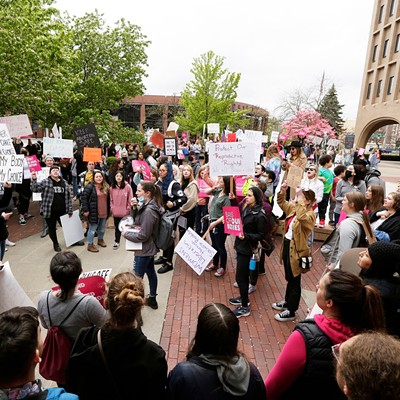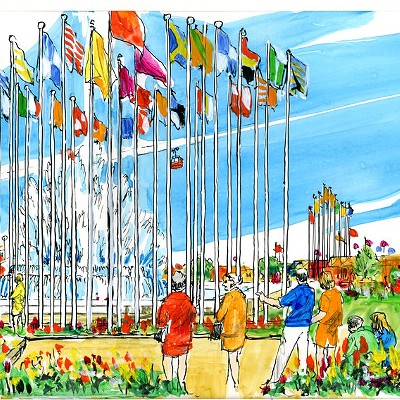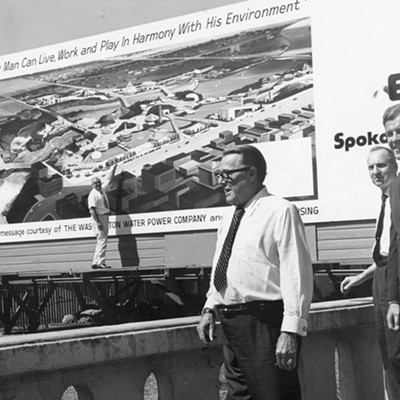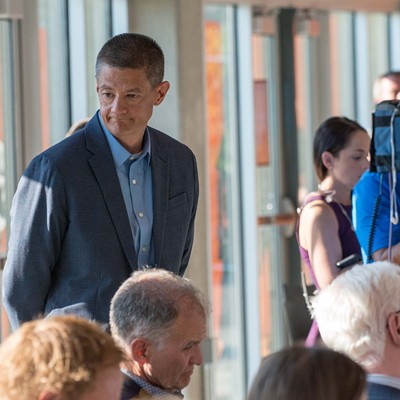If you're a rookie journalist trying to find your way in the world, take comfort in this: Thanks to social media, you have whole crowds of people happy to explain to you at length what Real Journalism actually is and how it just happens to support their politics.
But just in case you feel you can't always trust the partisan mob, I thought I'd share a few tips and tricks I learned along the way. Like a GameFAQs page, but for journalism.
- Ignore the volume and anger level of online criticism being thrown your way. But seriously consider the substance.
- Some of the same people who yell "fake news" the loudest are the sort who reach out to you privately and politely ask for a correction if you actually got a fact wrong.
- The vast and powerful tools of investigative journalism are most frequently employed in trying to track down somebody's phone number.
- Smart reporters get smart by asking many dumb questions.
- Reporters shouldn't try to become the story. But if you have become the story, and you don't write about it, you're ignoring the story, and that's even worse.
- The best time to request a public record was a year ago. The second best time was six months ago.
- Records clerks are lovely and beautiful people. Ask nicely if there's anything you can do to narrow or prioritize your request to get it done faster. They are just waiting for you to ask.
- Any city hall reporter should, every year, request the following records: The salary, overtime pay, and names of every city employee; the names and dates of employees who've left the city; the calendars of the mayor, city administrator, and communications director; and the log of all other records requests.
- There's a secret, ugly-ass document portal at publicdocs.spokanecity.org/cityclerkrecords that lets you pull up numerous contracts and other documents without needing to wait months or years for the records request. You can look up a whole host of documents — including name changes — at the Washington State Digital Archives. You can find extra campaign finance info by typing "open data" into the PDC search bar.
- Both reporters and activists love to argue about what precise words to use for specific groups. That's fine. But nobody has ever become more sympathetic to a homeless person merely because you refer to them as "houseless" or a "person experiencing homelessness." But tell that person's story, with all its messiness and humanity? That's when readers actually care.
- "Access journalism" — soft-focus and friendly pieces — is fine, but the only access it grants is to more access journalism. By contrast, if you write a very critical but accurate piece about someone, they might reach out to you when they want to expose something they see wrong.
- Always read the bill. Don't rely on what the activist says. Don't rely on what other reporters have written. Read the bill. The text may surprise you.
- Don't obsess about "reading the room." If you do your job correctly, the room will read you.
- The worst PR flacks were — as they will frequently remind you — previously journalists.
- When a flack tells you "end of story," that's your clue there's much, much more to the story.
- Record every interview with a politician. This is especially true if they call you a [word beloved by Deadwood brothel owner Al Swearengen].
- It's theoretically possible to conduct a valuable interview over email. But never with the sort who demands it.
- Sources lie very, very rarely. They misremember very, very frequently. Don't confuse the two.
- Screenshot, screenshot, screenshot! The people demand proof. Better yet, pay for a tool like Gyazo, which logs the exact timestamp of when and where you captured the image.
- Reporters who opine the most about What Makes Great Journalism are rarely the ones doing great journalism themselves. ♦



























